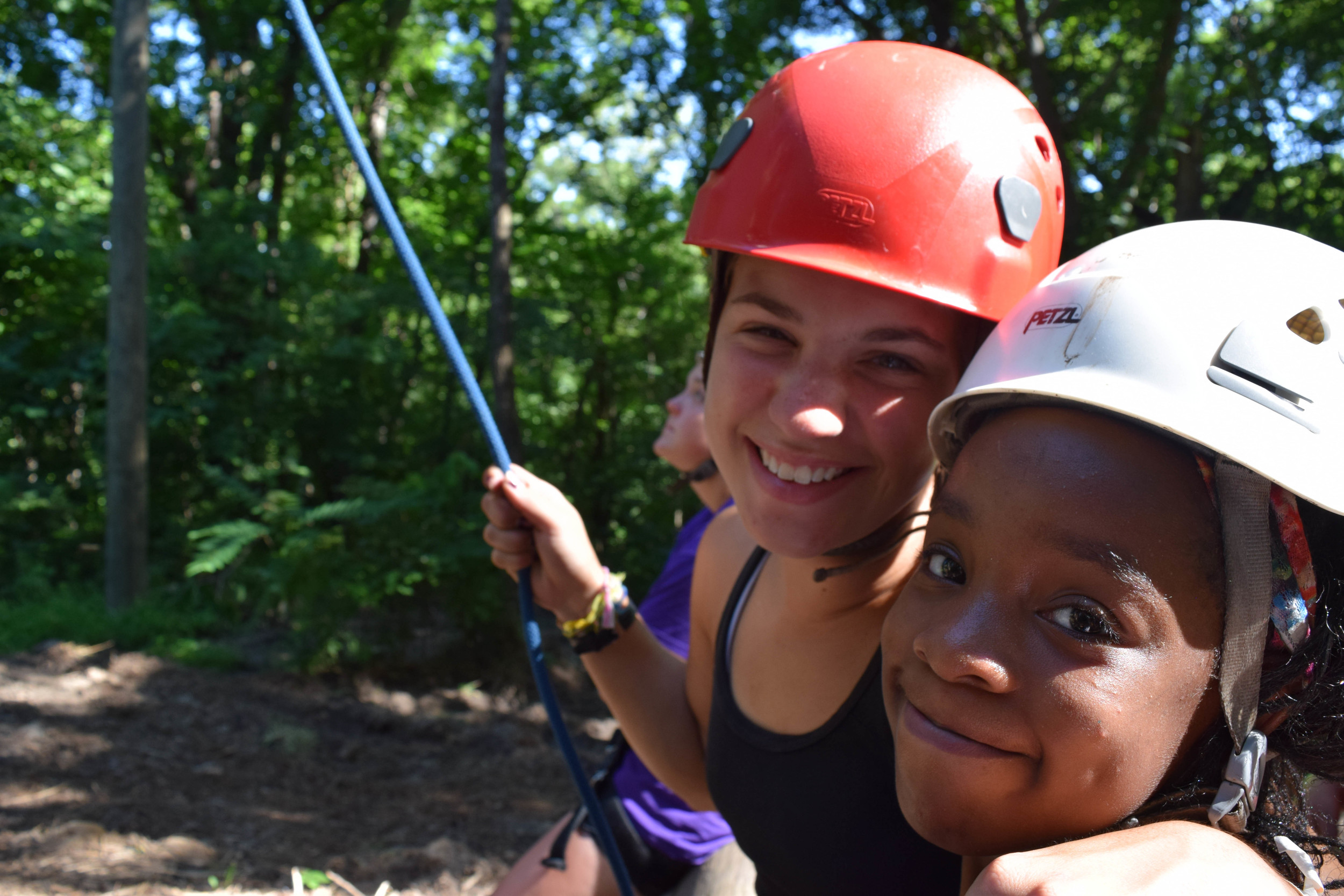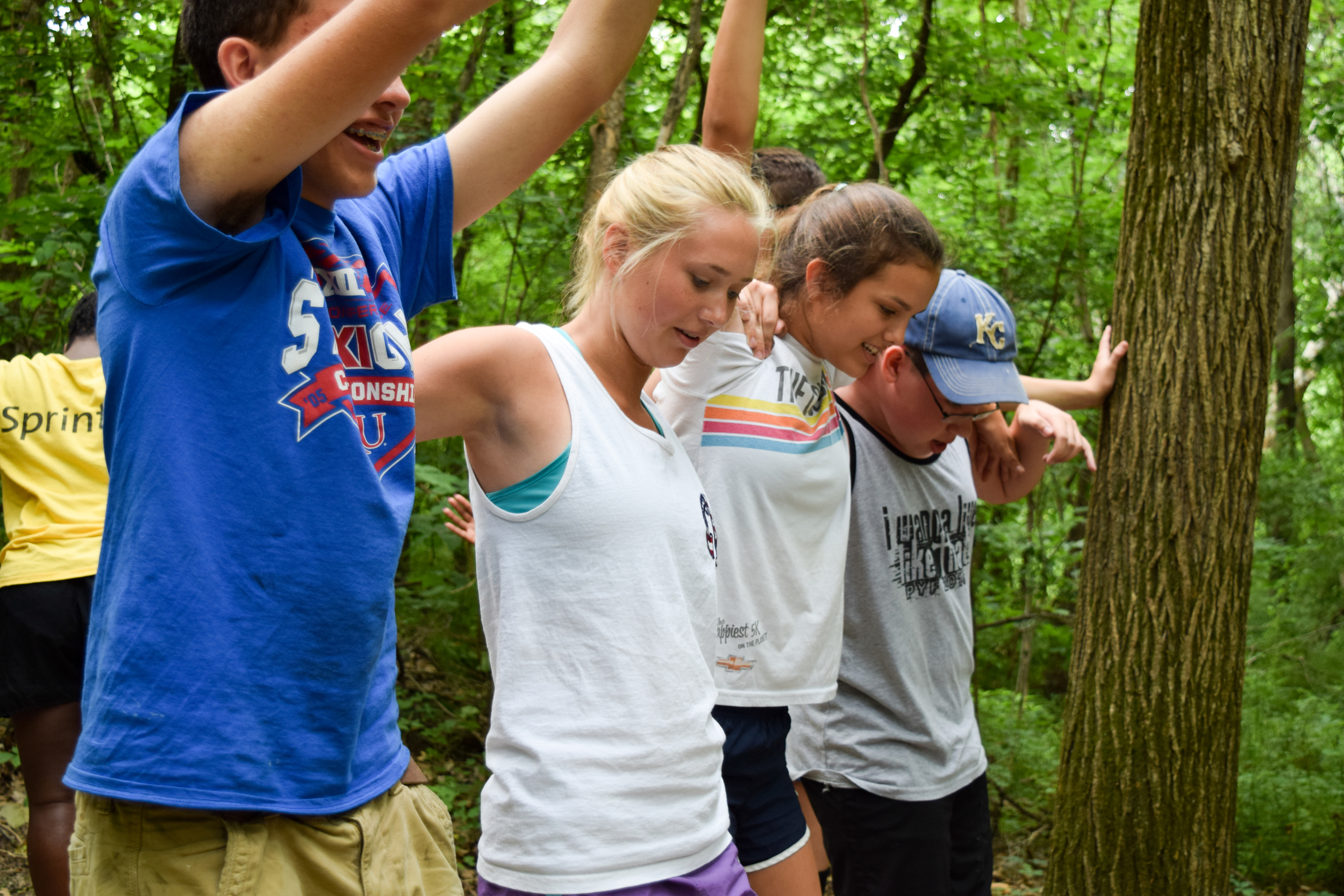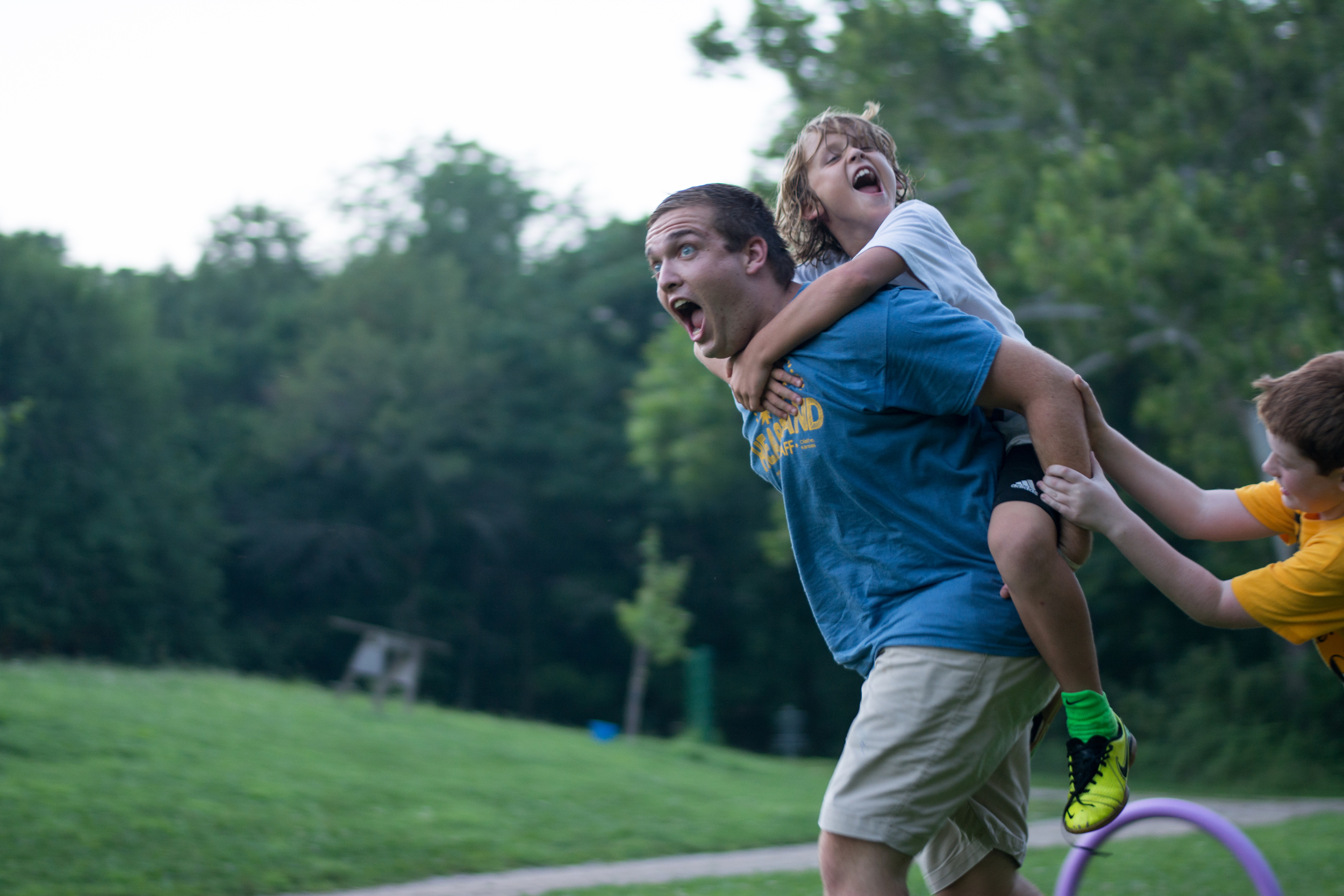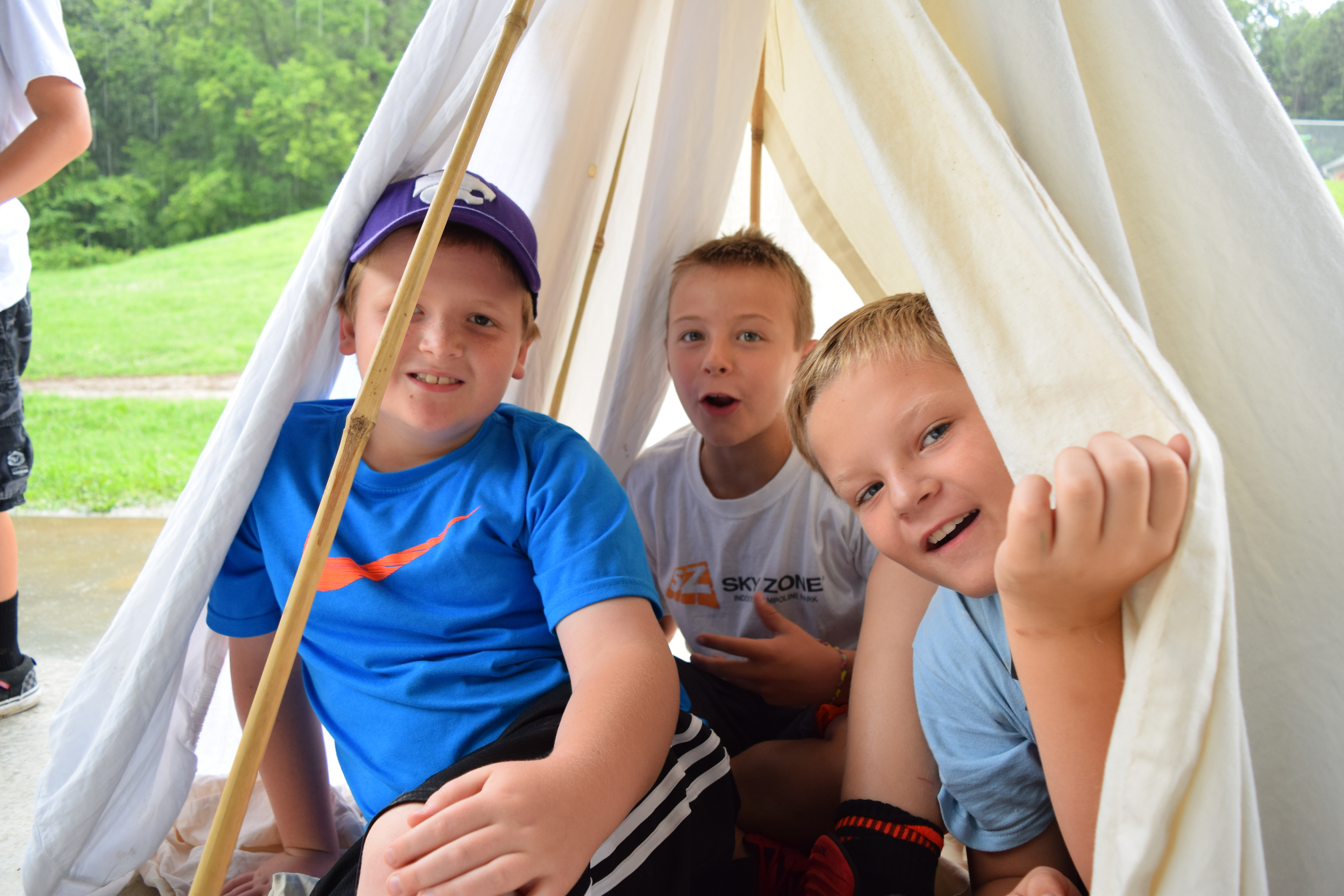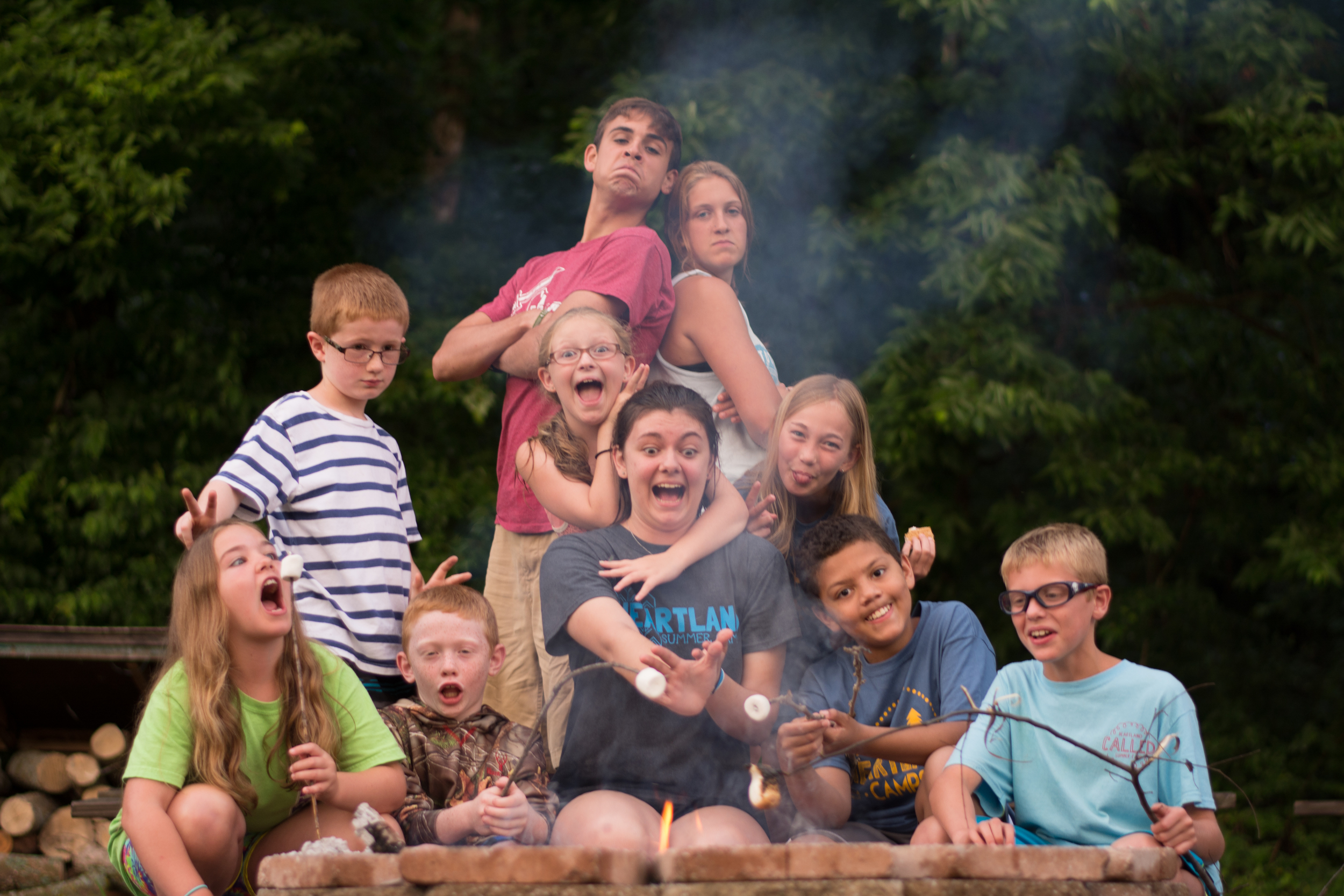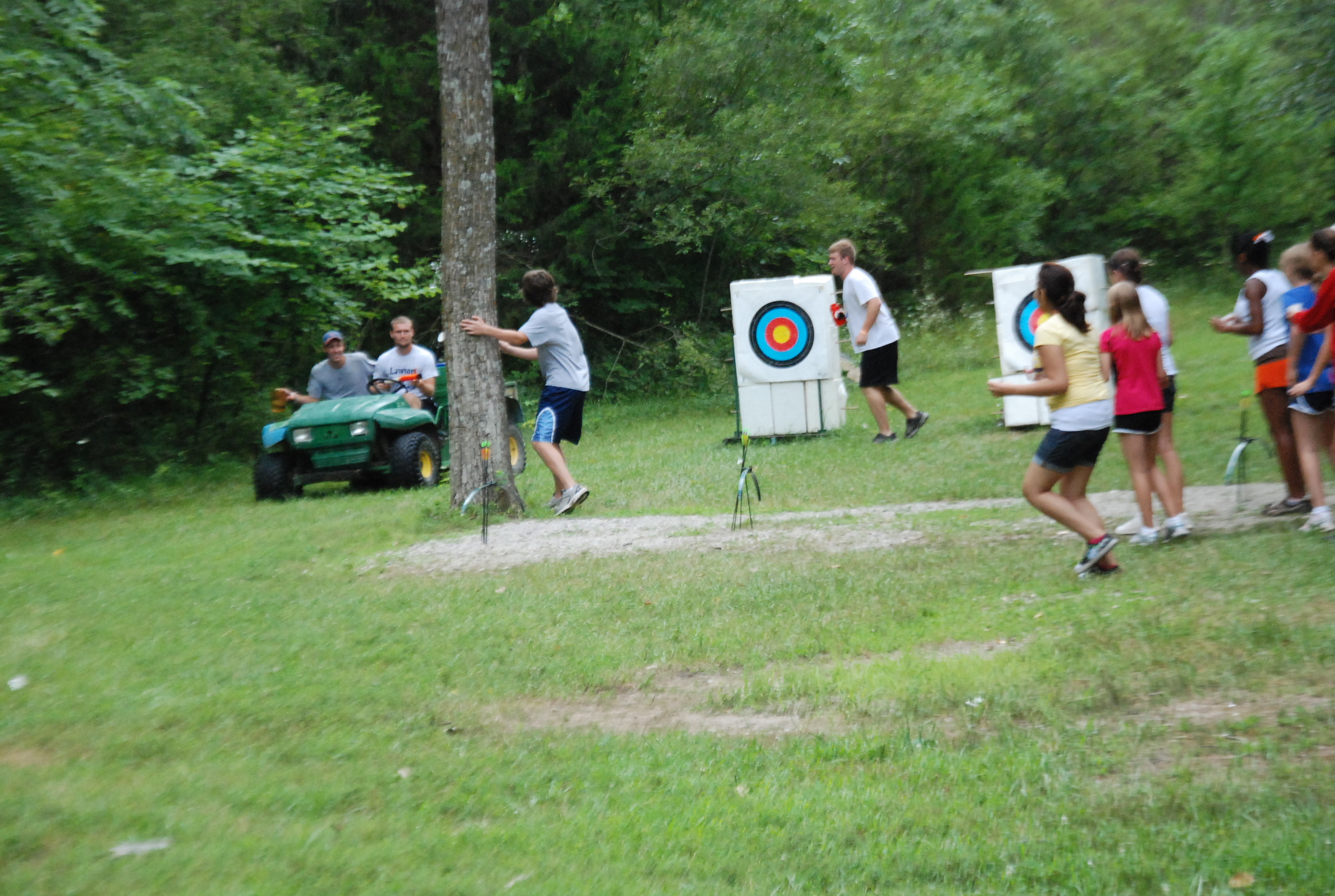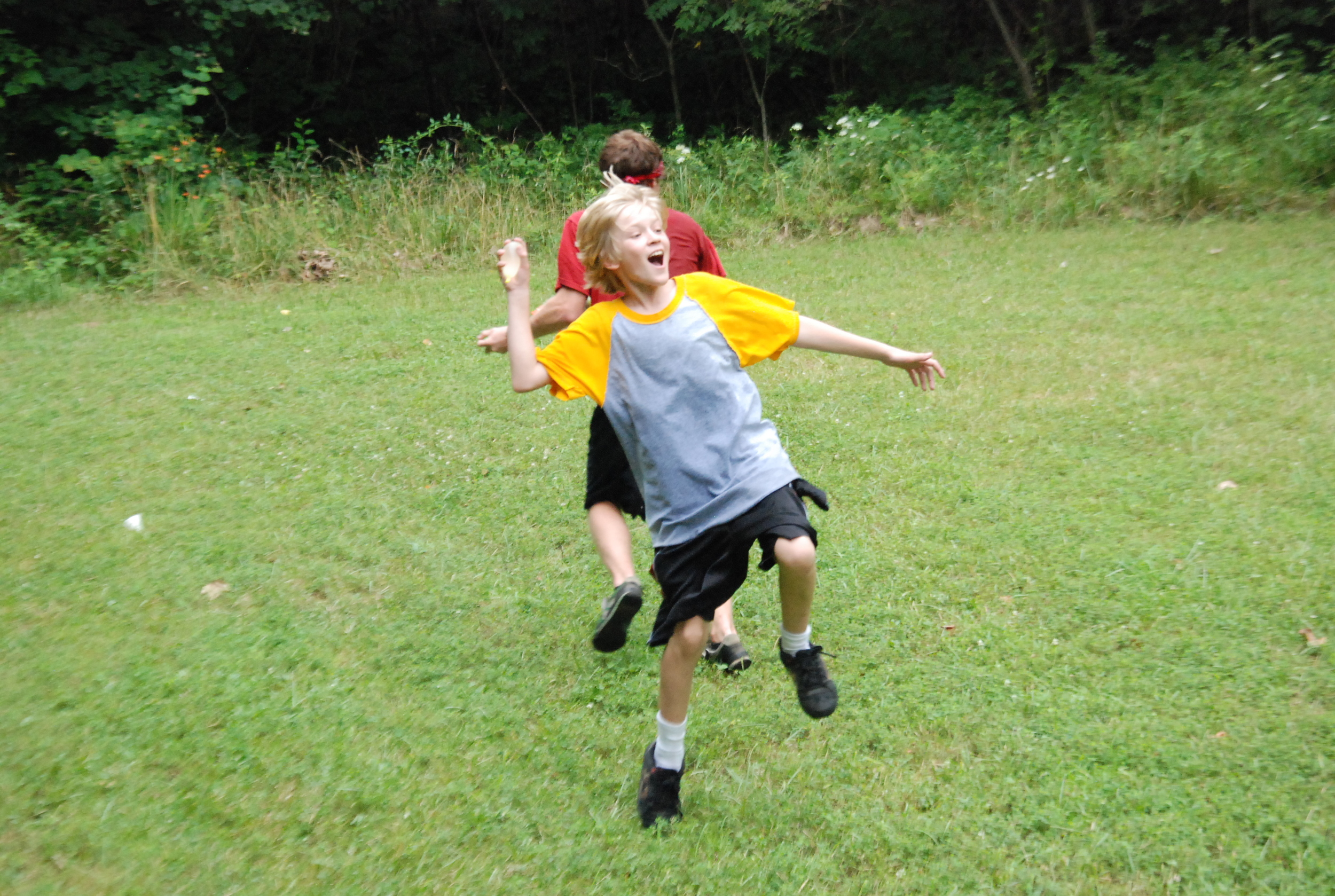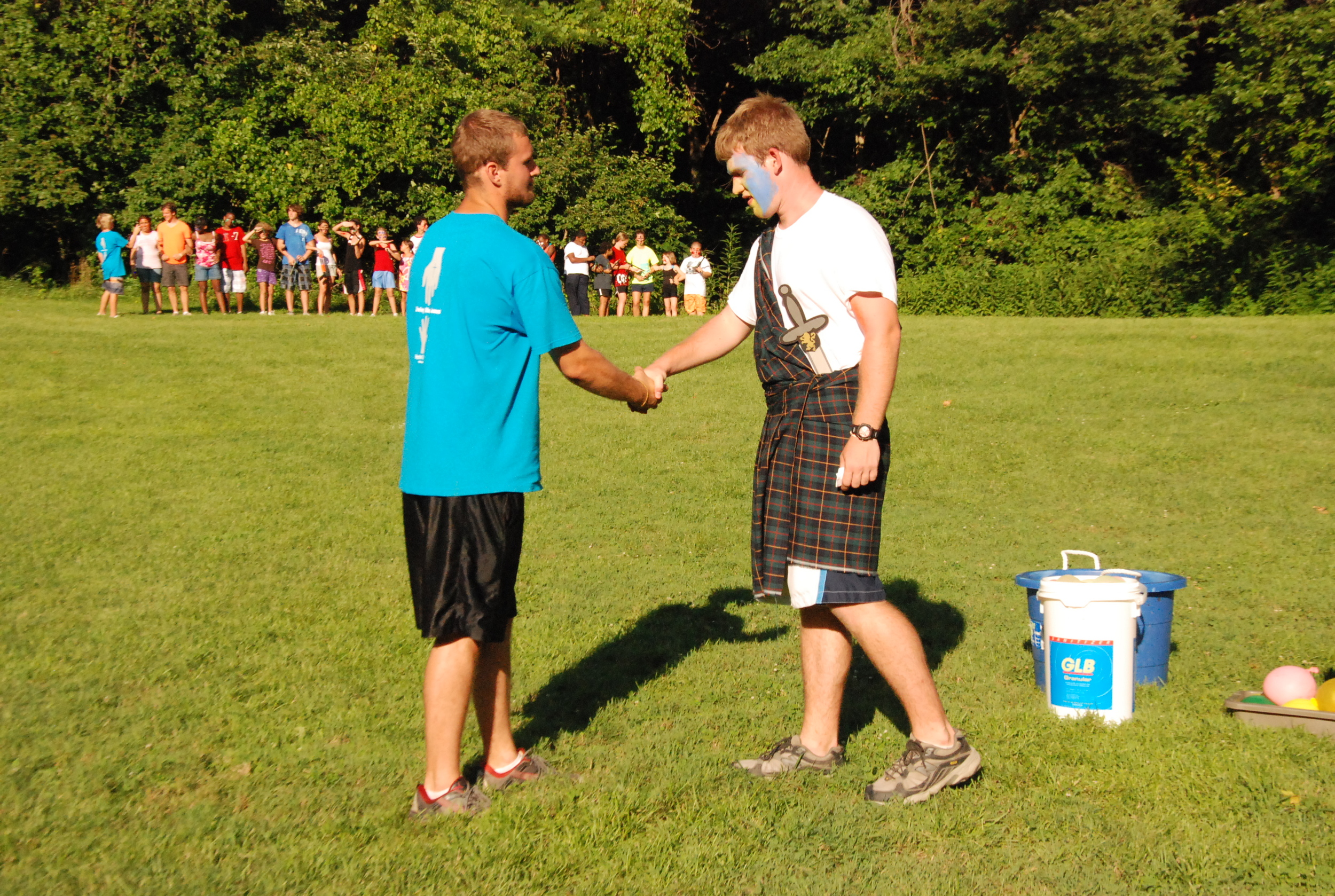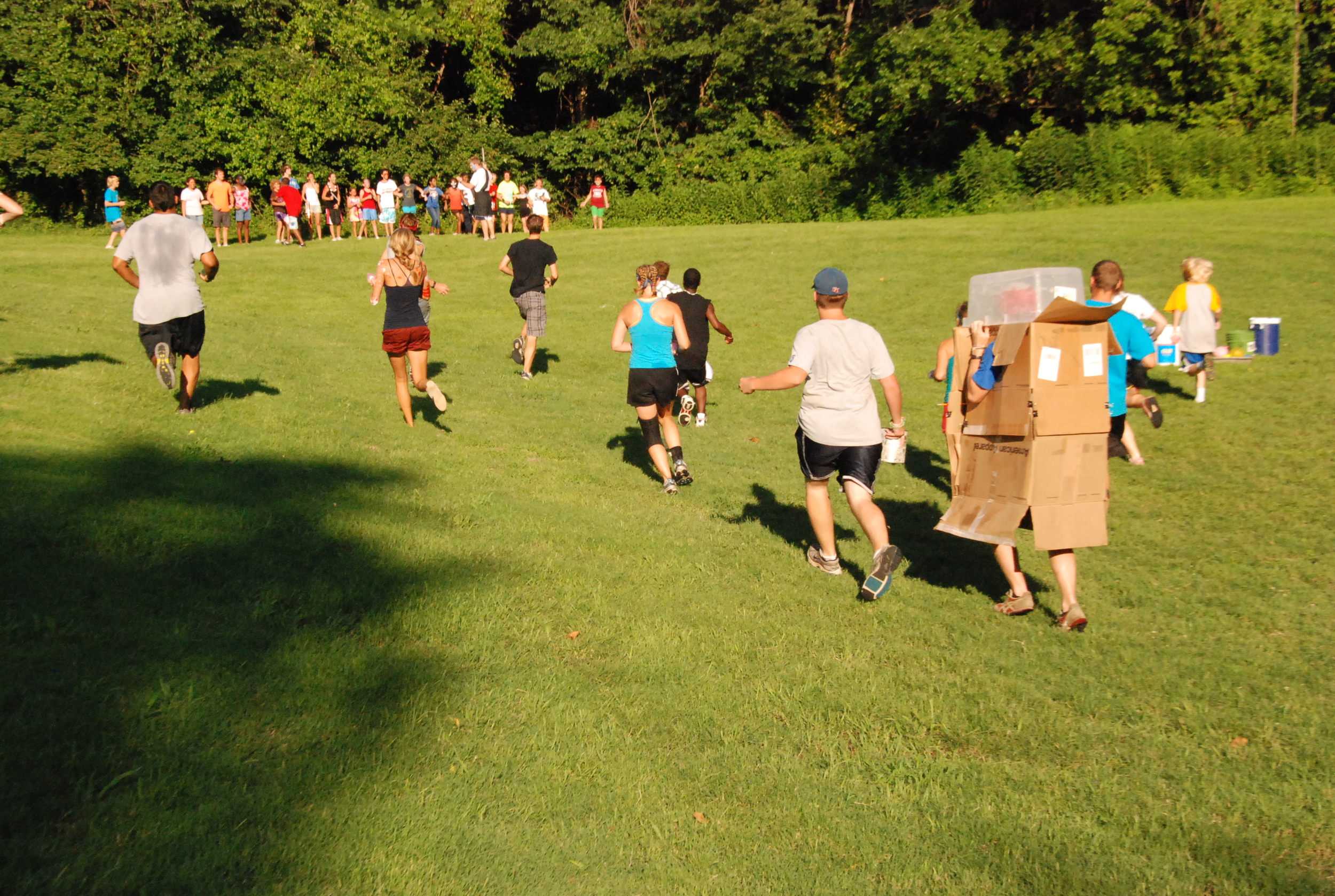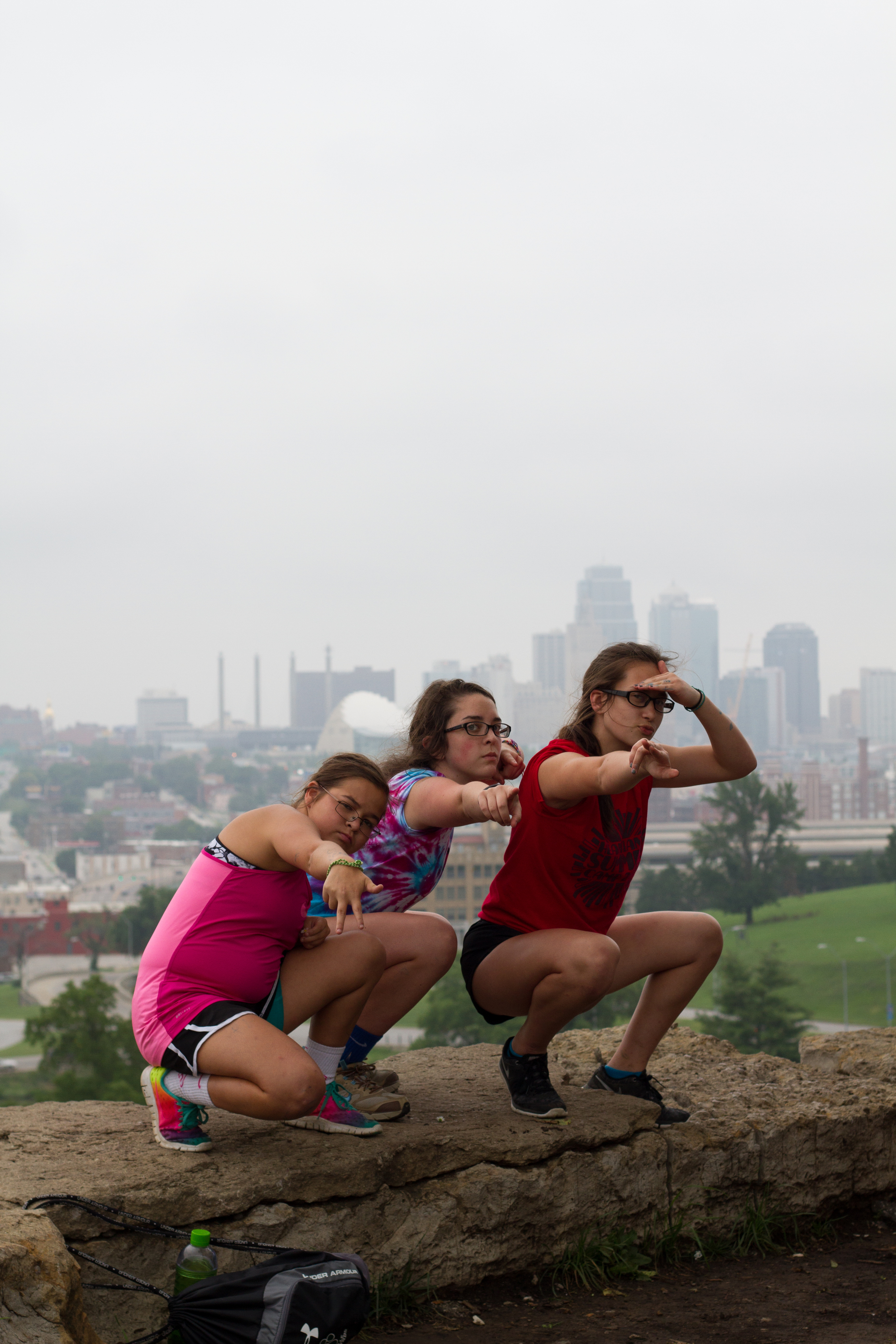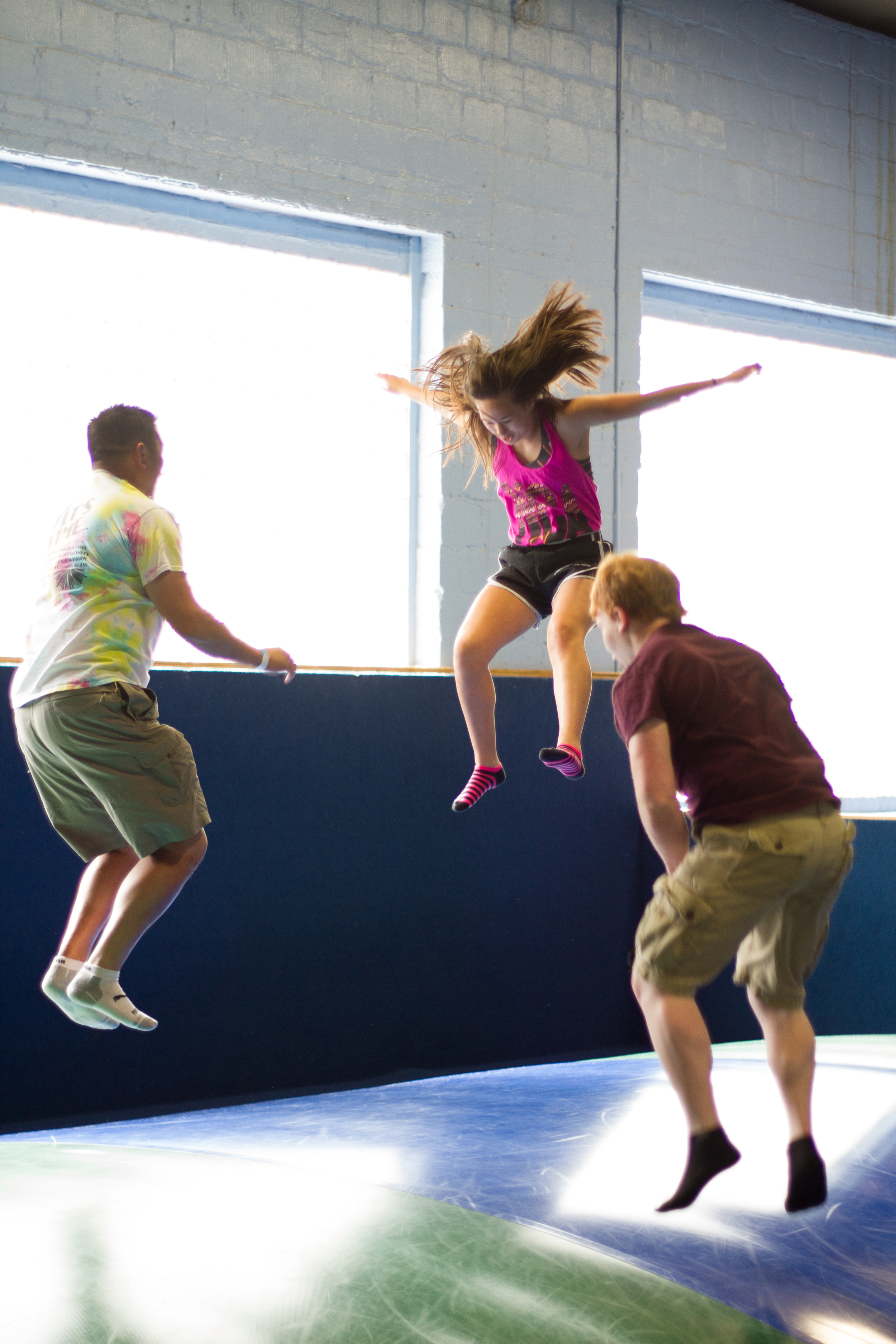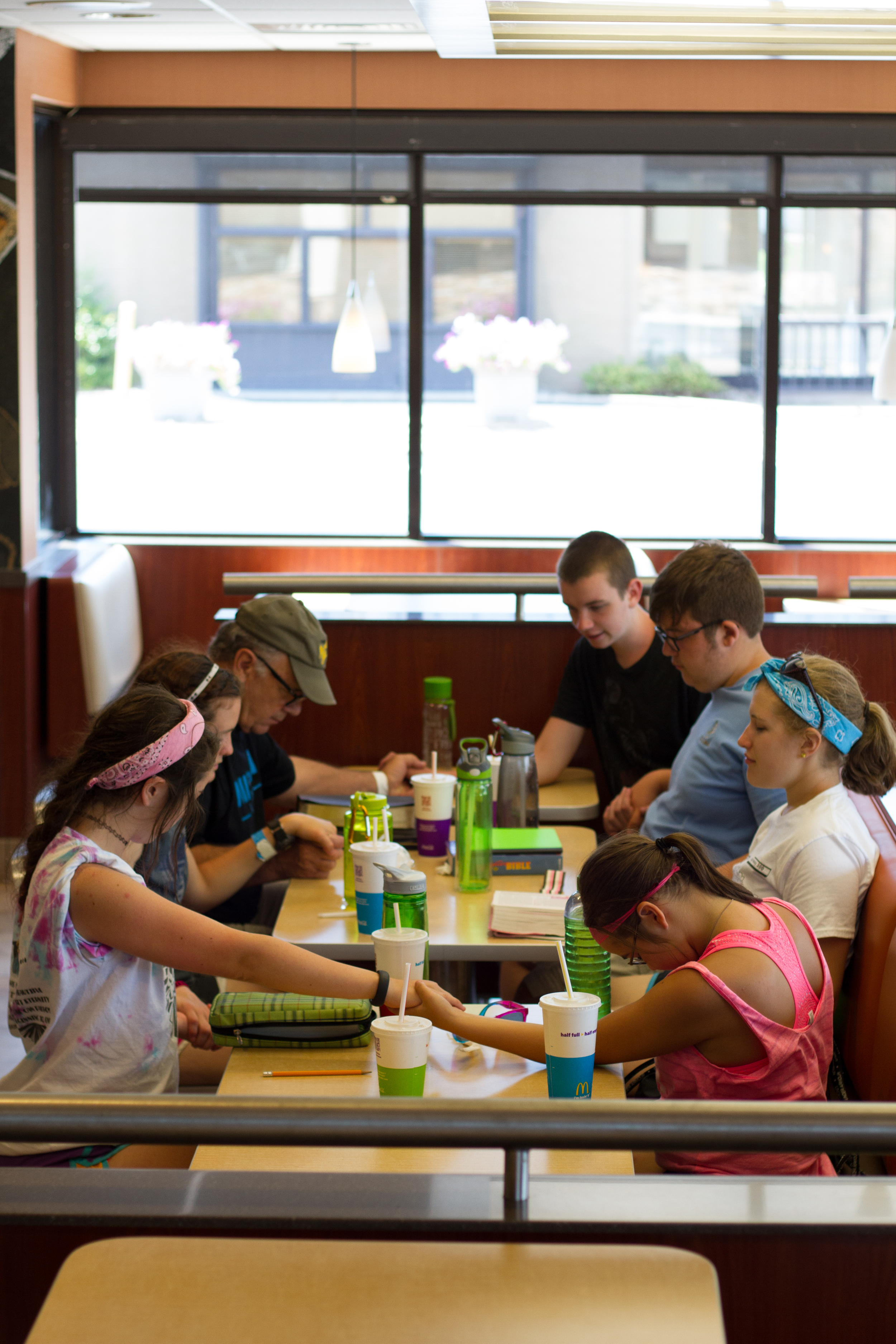Purpose of Play
I will admit, against my ego’s wishes, I am not an expert on many things. Parenting would fall under that category. I have never changed a diaper, taken a kid to a doctor’s appointment or paid into a college fund. So a blog post on parenting may seem a bit out of my league, but my ego believes in me and so we go…
Though everything so far says I will spend the next 1000 words talking about something I am completely uneducated about, I do not plan on subjecting you to that. The topic of this post is play, and specifically playing with children and youth. Play is one area where I may be an expert, 3 summers of counseling campers K-12 have given me plenty of hours of experience in play, not to mention a lifelong passion for ignoring responsibility for any type of competition.
In my three summers no week of counseling was alike. I had campers from ages 6 to 17, I had rainy weeks and all too hot weeks, I had weeks with 3 boys and weeks with 8. What was consistent every week was that I needed to build trust and relationship with my campers. My goal was to tell them about Jesus, to share how big an impact His grace and love had on my life, but before I could do that I had to show them I was someone who was worth listening to. To achieve this I found no better avenue than play.
I have three stories to share my point.
Pretend Possibilities
As a counselor my specialty was campers 4th-6th and 6th-8th grades, at camp we call them our Highlander and Middle School camps. These were the ages I was used to. One week I was asked to counsel both Trailblazer and Explorers, which are grades 3rd-4th and 2nd-3rd respectively. I had counseled Trailblazers once before and I had never counseled Explorers so I was a bit nervous and definitely out of my comfort zone.
Our Trailblazers came and went, their camp is Sunday through Wednesday, and so it became time to welcome my Explorer campers Wednesday night. As my co-counselor and I prepared to greet our new campers, I was feeling nervous I wasn’t sure what this age would be like and what new challenges I would face. We greeted our campers and while walking to our craft lodge I realized that I didn’t have much in common with these creative and energetic second graders, mostly due to our different views on international economic policy.
We finished our name-tags at the craft lodge, and as we walked to our cabin I was racking my brain for topics of conversation and strategies to grow closer to these campers. We placed our things on our beds and an opportunity to grow closer to these campers is given to me by a question. “Can we play pirate ship?” Since it had been awhile since I had been a second grader I had to ask what that game was, he shared that we were surrounded by huge evil alligators and we were pirates (I don’t know how I could have missed that when we walked into the room, things like that are pretty obvious).
In that moment I was confronted with two options; to let them play by themselves watching from the sideline, or to join in myself. There was a large part of me that wanted to choose the first option, there was a part of me that felt uncomfortable about being silly and creative, another part said you are too tired, you should rest, they will have fun either way. I am so glad I choose the second option and took to life on the high seas.
We defeated the alligators together, though we lost a couple ships in the process, we gained trust. We now had something in common, I had some capital, and not to mention we all had 15 minutes of fun. Everything from new rules for the week to bedtime routine became easier through the trust and common experience of playing together. By choosing to meet my campers where they were comfortable instead of where I was comfortable we began to build a deeper relationship.
Fake War-Real Relationships
My second story happened when I was a high school volunteer, I was helping counsel a Highlander Archery camp. Between me and the other counselor we had three boys, a group that small is unusual at camp and had the potential to cause some problems. I was worried because if a couple of the guys didn’t mesh well together there wasn’t an ability to hide it, they were going to get lots of face time together.
Sunday night went great, but on Monday our group started to see some cracks. All three of the boys had very different temperaments and interests so there was some tension growing in our group. Recognizing my worry coming true, my co-counselor and I came up with a plan. On Tuesday morning, in hushed voices, we called our campers over. We let them know that we had come across another camps secret movements, they were taking over our archery range!
We didn’t let them know that this was a typical scheduled archery time and that it had been on our schedule since Sunday. Immediately we began preparations to defend the archery range that as archery campers was rightfully ours. We filled up water balloons, we found water guns, and we even enlisted the help of Michael Megraw, the program director, and two other leadership staff. This valiant defense of our archery range sparked a camp-wide water war; staff and archery camp on one side and the rest of the camp on the other. This lead to secret meetings, a traitorous staff member, a cardboard robot, and lots and lots of face paint.
That water war is still one of my highlights as counselor. Besides being a whole lot of fun, this experience did something special for our group. By the end of the week they were a team, the experience of playing together was able to bond them together despite their differences. Typical parental tasks like enforcing rules makes it feel like there is a gap between you and your child, play gives a sense of teamwork that can be easily lost in typical family routines.
Amazing Transformation
My final story is from my second year on staff. I was counseling our Senior High Amazing Race camp, my co-counselor and I were set up to meet our group of 10 high school guys and girls. Our third camper was one of my guys, he seemed downcast so I assumed he was uncertain about meeting friends or about coming to camp.
I sat down next to him and began asking him questions, quickly he shared with me that he did not want to be at camp, that he was forced to go by his parents and that he was set on not participating. This was not my favorite way to start a week, but the result was worth it.
Amazing Race camp is unlike any other. That week we followed clues and challenges across Missouri, Kansas and Nebraska. Our challenges included wearing wigs while singing camp songs in Omaha, decorating a wedding cake and exploring the treetops at Arbor Day Farms in Nebraska. Through playing together and navigating three states together (often poorly) my camper's walls were broken down. The young man who came to camp disengaged and distant from the people around him became open, silly and vulnerable.
He was able to share with me hard things that were going on in his life, and I was blessed to be able to listen and pray for him. The power of playing together completely changed his mind and heart, allowing me to talk deeply and openly with him. The most rewarding part of this whole experience was the next year when I got to see him at Senior High Challenge camp, and he was excited from the very beginning.
As parents, youth directors, or people who care about child development we must see the necessity of play. At Heartland camp we spend a week playing in pools, on our challenge course, shooting archery, and riding horses all to build enough trust and openness to share the Good News of Jesus. Christ Play with the children in your life that you care about; meet them where they are comfortable, use common experience to become a team, and finally break down walls to share not only experiences but hopes, fears, dreams, and heartbreak.
To play more here are three summer camp games that are easy for anyone to jump in on.
Rock Paper Scissors Split
This game is great because it just needs two people and can be played anywhere inside or outside. The concept is simple too.
Step by Step:
Participants find a partner and line up toe to toe with their partner with one foot. The other foot goes behind and is heel to toe with their other foot.
They play RPS (rock, paper, scissors).
The winner of RPS moves their front foot back, the loser moves their front foot forward. Always move your FRONT foot.
As you play the distance between the two people grows causing whoever just lost RPS to do the splits.
Keep playing until one of the participants loses their balance or touches the ground.
Eagle Eye
This game is similar to hide and seek, with a twist, nobody moves during the game. This game is fun for all ages and all locations, get creative with your hiding spots!
Step by Step
Choose one person to be the seeker aka the eagle. They will be given a spot to stand, and they will stay there the whole game. The spot should be centrally located in your playing area.
The eagle then closes their eyes and counts to 40. Everyone else then goes and hides, the catch is they must be able to see the eagle from their hiding spot. You are not able to move from your hiding spot or duck your head when the seeker is looking at you.
When the eagle is done counting they look for all the people that hid and call and point when they see someone. That person is out and comes back to the eagle, but cannot reveal the location of the other players
The game ends when the last person is found. The last person found becomes the new eagle.
ERS
This game stands for Egyptian Rat Slap, don’t ask me I didn’t come up with it. This is a card game requiring one deck of playing cards for 2-5 people and two decks for more than 5. The goal of the game is to get all of the cards. This game is fun for everyone, but middle and high school kids get particularly invested.
Step by step
Shuffle all the cards together, removing jokers, and deal them all out face down.
Each person picks up their stack of cards as is, but does not look at them. The person to the left of the dealer puts a card in the center face up. The person must put the card in the middle quickly, they should not look at the card first.
This continues around the circle until a face card is played down. Once a face card is played down the next person must put down a face card in a specified number of cards. (Jack 1 card, Queen 2 cards played one at a time, King 3 cards, Ace 4 cards) If they cannot the person who last put down a face card gets all the cards in the pile. If they are able to then the next person must put down a face card.
The person who picks up cards is then the first person to go to start the new pile.
If at any time there is a double, that is two of the same number card in a row, then that pile can be slapped by any player. The first person to slap it gets all the cards in the pile. You can also play with sandwiches where if two of the same card are separated by just one card then you slap the pile
If a player slaps falsely they must place their top card on the pile as a penalty.
Play until one person has all the cards. Once you run out of cards you are allowed to wait for a double or sandwich and slap the pile in order to get back in the game.
Written by: Jared Briscoe

